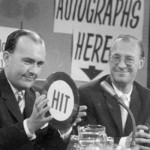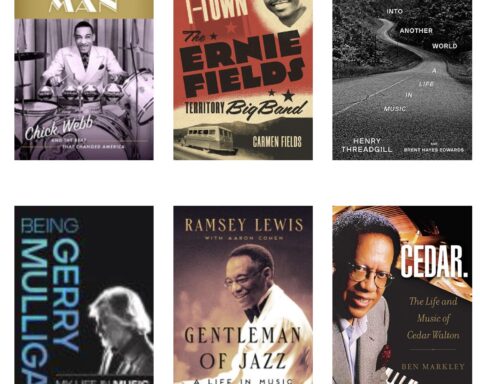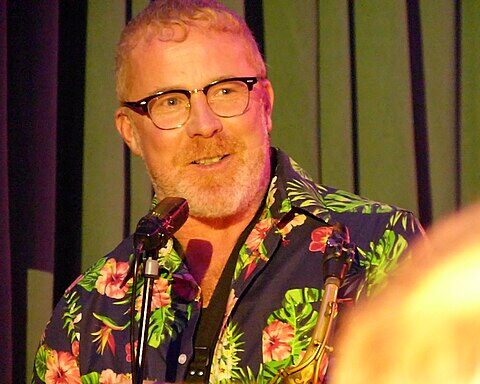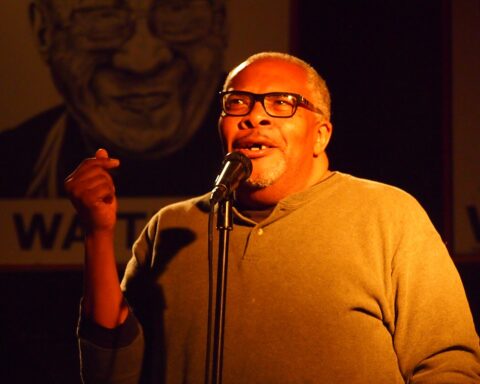 What does a writer need to know in order to write both well, and also dispassionately, about music?
What does a writer need to know in order to write both well, and also dispassionately, about music?
Many musicians feel that only another musician, one equipped with a technical understanding of the craft, can take the full measure of one of their own. But is that necessarily true? If it were, we might presume that many if not most musicians speak with one voice, and agree on the attributes that give a piece of music its beauty, its weight, its depth and originality. The wish for a commonality of feeling is a natural and very human desire, and even a phrase like “a musician’s musician” speaks to that very desire, that is, that we all share certain musical values. But the truth on the ground suggests otherwise; music is as complex as the musicians who compose and play it, and musicians — not surprisingly like most other groups of people — are not cut from whole cloth, and therefore can differ widely in their views and values.
A few years back, I participated in a jazz reviewing clinic given by Paul de Barros and Dan Ouellette at the IAJE conference. In his advice to would-be reviewers, de Barros said that the listener/reviewer needs to “let the music happen to you.” That initial sense of implied surrender — if I understood him correctly — seemed, and still seems, like a very true place to start. And my sense of its rightness was reinforced recently by a superb interview with the poet Mark Strand by the playwright and actor Wallace Shawn, in his latest book Essays, in which Strand said, “… poems not only demand patience, they demand a kind of surrender. You must give yourself up to them.”
The value of that surrender is that, hopefully, it allows the listener an essential first impression — however fleeting — free of labels, generalizations and preconceptions. And I sense that it is never an easy task for any of us — musicians, critics, and general listeners alike — to resist certain preconceptions that might be so hardwired into our own way of thinking and feeling that we are quite simply unaware of them.
But certain kinds of historical and technical knowledge, used wisely, can be enormously helpful. A writer with knowledge of the history and legacy of jazz can afford his readers an important sense of context, which they might not otherwise have. For instance, Thelonious Monk’s compositions sound to this day like they were written tomorrow. His melodies are profoundly playful (not merely clever, although that too), and as a pianist, his highly personalized phrasing is strikingly alive. What a great pleasure it would be for a novice listener to learn that the marvelous beauty and originality of Monk’s very modern voice (as both composer and pianist) is also suffused with the historical legacy of stride piano.
In order to give readers the all-important flavor and character of a piece of music or a performance, a writer would probably be well served by having a good intuitive sense of basics like meter, harmony and tempo. Moreover, certain technical knowledge, for instance the ability to track harmony and harmonic substitutions in a very specific way, or to identify unusual time signatures and rhythms, might allow a writer to describe with more depth the particular nature of the music’s flavor.
Ultimately, however, what is communicated must be written, primarily, in a non-technical way. And it is probably also true, for both musicians as well as critics, that knowledge and technique are only as useful and appealing as the way in which they are applied. So in the end, it becomes a lot less about how much we know, and much more about the quality of our attention. In this regard, the painter and critic Fairfield Porter shines like a beacon. (I am thinking in particular of Art In Its Own Terms, an anthology of extraordinarily rich and thoughtful criticism that Porter wrote from 1935 until his death in 1975.)
Although Porter was a practicing artist (and championed by fellow painters Willem de Kooning and Jane Freilicher, among others), what distinguishes his criticism and makes it so rewarding to read is something more fundamental than his technical grasp of painting. Far more important is the generous and nuanced quality of his attentive gaze, and his very ardent desire to explore another’s consciousness, with patience, self-awareness and integrity. For that, one needs an agile and open mind; one needs to apprehend the specific idiosyncratic flavor and character of a particular artist, and then find the words to share it with one’s readers. To my mind, that is the most important service, and also great gift, a fine critic can offer his readers. For that revelatory journey (with both writer and reader on board), knowledge and technique will only take us so far. It is human and spiritual talent that will let us go the distance.





Leslie this is a great piece. The musically literate voice is important, but people seem to respond when I assert this fact that other voices count too.
I took on the topic on my blog in a slightly different form here
http://londonjazz.blogspot.com/2009/09/is-rock-criticism-dead-or-phony.html
And had a very coherent response indeed from Professor Simon Frith.
You're setting the bar high for us as critics, and that can only be a good thing!
Leslie - brilliantly written and thought provoking! I think you cut right to heart of what's important in critical writing on the arts. Lovely essay.
Jason
Red Cat Publicity
Well said, and true.
This is the sort of stuff I was hoping we would have on this site.
Approaching one's subject with an open ear and open mind is absolutely essential. We've all read - and, in all likelihood, whether we want to admit it or not, have also (hopefully far in the fast-fading past) written pieces from perspectives which, in retrospect, we should find, at the least, embarrassing.
Common sense and/or decency also calls us to write about our subjects in ways that will speak as vividly to those in the audience without significant technical knowledge as to those who do possess relevant insider information.
It's not an either/or proposition; it is more like an and/also situation.
If that constitutes some sort of informed advocacy, so be it. We have a vested interest in keeping jazz off the endangered species list.
Writing in a way draws in less savvy readers and solid critical thinking are not mutually exclusive, though succeeding at both parts of that combination certainly remains a challenge.
Very thoughtful and revealing writing. As a musician who's become a photographer, it is evident to me that this approach would work equally well in the latter field.